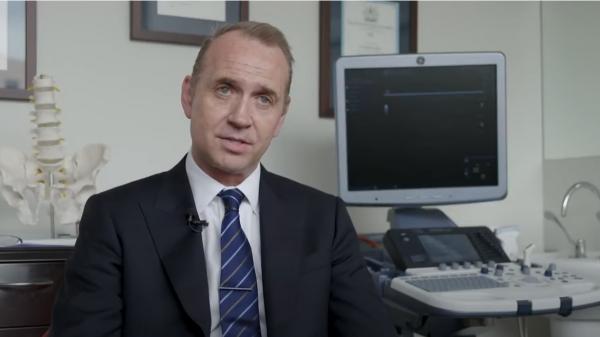A Young Woman's Journey
View transcript
Christina Maurice
Diagnosed with non-radiographic axial spondyloarthritis at age 22
When I was diagnosed with arthritis, I felt confused, so, “Isn’t arthritis an older person condition”, but I was actually relieved, because it made sense for what I was experiencing. My symptoms were lots of joint pain, lots of muscle fatigue, lots of general fatigue. Also, my gut wasn’t really great, so there’s lots of different things happening at the same time. I went to my GP and asked for a full blood test. The blood test revealed high inflammation markers and a high ANA reading. The results from that triggered something for the GP, and she directed me to see a rheumatologist. After I’d seen the rheumatologist, and he saw that all the symptoms I was experiencing was probably in line with spondyloarthropathy, I went through a series of tests to confirm that diagnosis. That included X-rays and an MRI.
My rheumatologist was amazing and really walked through the process with me. Basically, he explained to me it’s an immune system related condition. Something triggers the immune system, and it’s causing inflammation in all your joints. This arthritis is a silent disease. You can’t really see it. You can’t see it from the outside. People don’t get it, so really, you try everything in your power to make sure you can still function normally without having to explain to people why you’re tired or in pain some days. I try everything. I try exercise. I try diet. I try sleeping heaps. I try being out in the sun a lot. I try being active. All of those things, I found, contribute to feeling better.
I’ve used a range of medication, anti-inflammatory medication, other kind of immune system inhibitors, monthly injections, immunosuppressants, antibiotics alongside of those, so a range of things. I would say to anyone going through this journey, no matter what stage of the journey, it is confusing. It is hard, because it’s very internal, and no one gets what you’re going through, especially if you’re a young person. Just be prepared that there will be good days, and there will be bad days. There will be medication that works and medication that won’t work so well. There’ll be days where you feel like you’re not living with arthritis, and then there will be days where you can really feel it.
I would say this is a journey, and be ready every day to experience something different, but have hope that at the end of the journey that you will be as normal as possible, and you will have days where you don’t even remember this whole journey.













